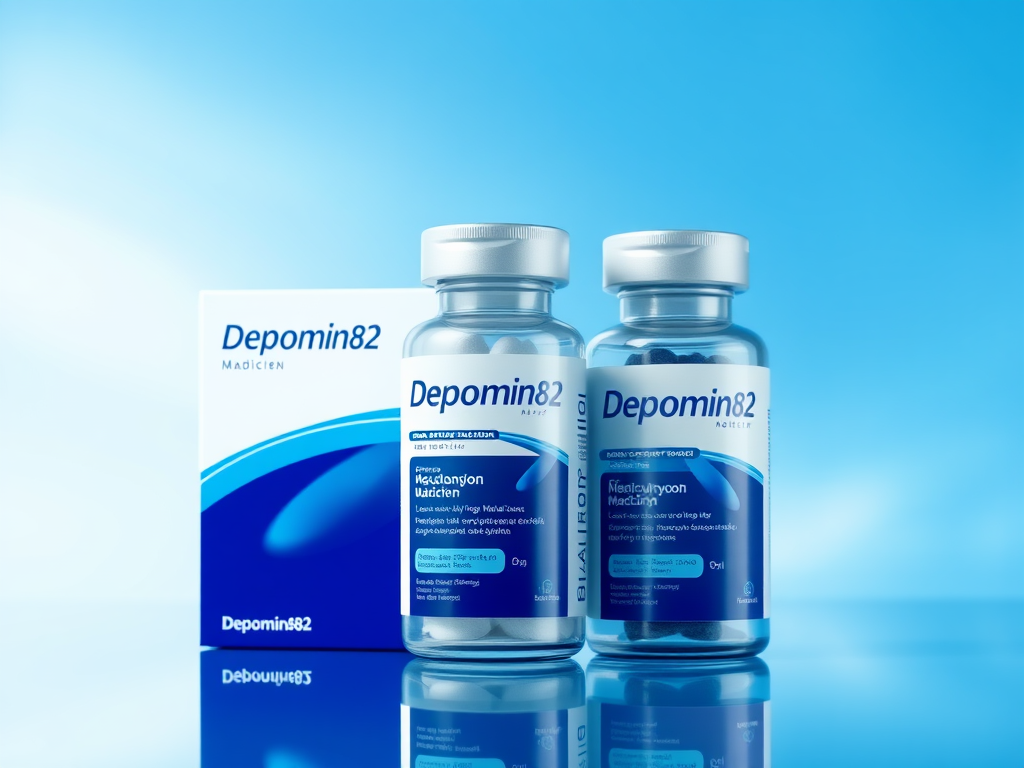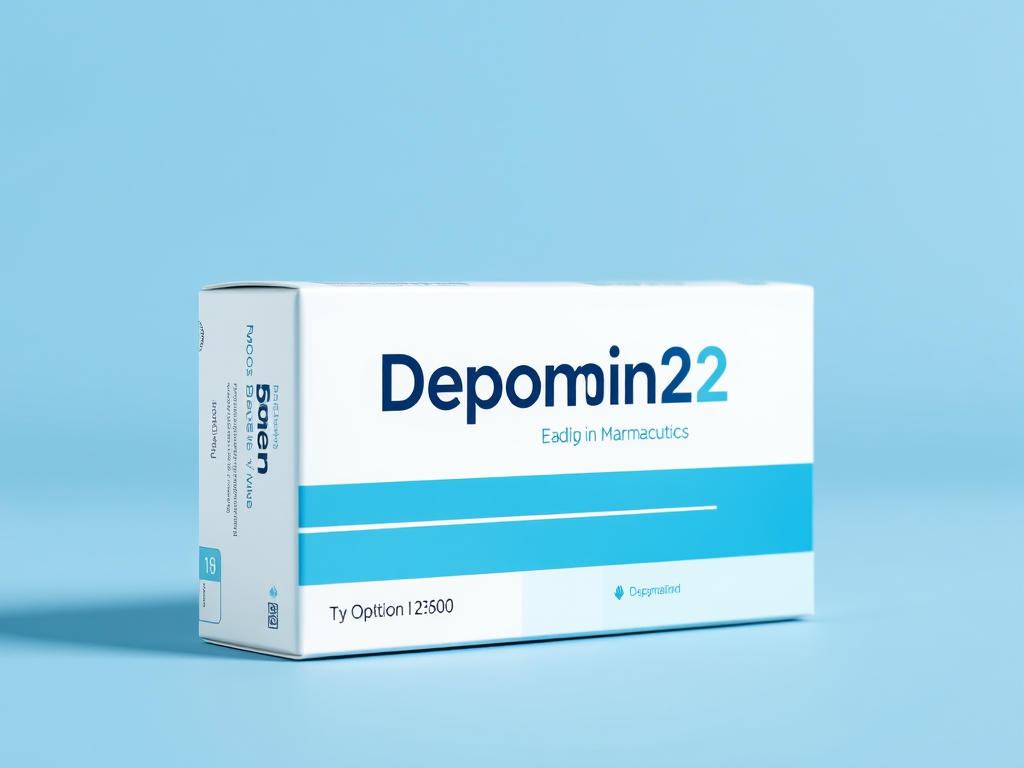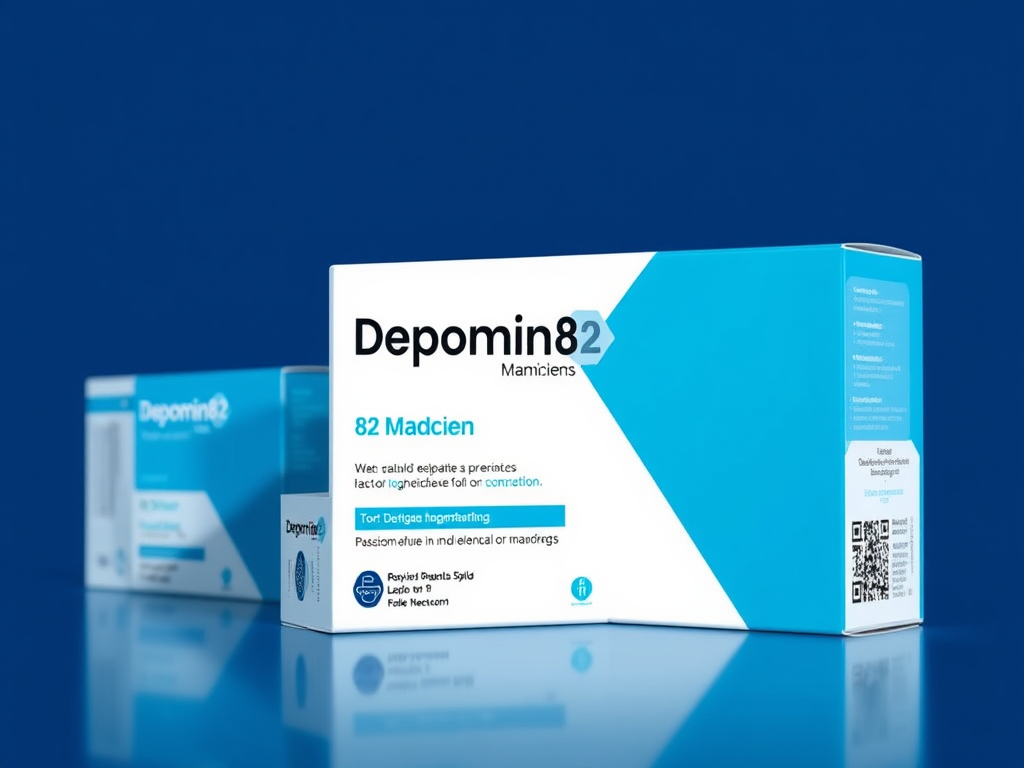Depomin82 is a medication that is often prescribed for treating specific mental health conditions and neurological disorders. This drug is commonly used for its therapeutic benefits, particularly in treating symptoms related to disorders like depression, schizophrenia, and other related psychiatric conditions. The active ingredient in Depomin82 is a form of dopamine receptor agonist, which plays a vital role in balancing chemical neurotransmitters in the brain.
In this article, we will delve deep into Depomin82, providing an in-depth understanding of how it works, its uses, potential side effects, and safety considerations. By the end, you will have a clearer picture of how Depomin82 functions and its role in modern pharmacology.
What Is Depomin82?
Depomin82 is primarily used in the treatment of mental health conditions such as Parkinson’s disease, schizophrenia, and other mood-related disorders. The active ingredient, bromocriptine, is a dopamine receptor agonist, meaning it stimulates dopamine receptors in the brain, which helps in balancing dopamine levels.
Dopamine is a neurotransmitter in the brain that helps regulate mood, movement, and other important functions. In conditions such as Parkinson’s disease and schizophrenia, dopamine levels are often imbalanced. Depomin82 works by restoring a more balanced chemical environment in the brain, helping alleviate the symptoms of these disorders.
Uses of Depomin82
Treatment of Parkinson’s Disease
Parkinson’s disease is a progressive neurological disorder that primarily affects movement. It is caused by the death of dopamine-producing neurons in the brain, leading to symptoms such as tremors, stiffness, and difficulty with coordination. Depomin82 helps by stimulating dopamine receptors in the brain, which can alleviate some of these symptoms and improve motor function.
Management of Schizophrenia
Schizophrenia is a severe mental health condition that can cause symptoms such as delusions, hallucinations, and disorganized thinking. While Depomin82 is not the first-line treatment for schizophrenia, it may be prescribed as part of a broader treatment plan, especially when other medications have not been effective.
Treatment for Hyperprolactinemia
Hyperprolactinemia is a condition characterized by an abnormally high level of prolactin in the blood. Prolactin is a hormone that plays a role in lactation, and excessive levels can lead to symptoms like infertility, irregular menstruation, and lactation in non-lactating women. Depomin82 can reduce prolactin levels, helping manage this condition effectively.
Management of Acromegaly
Acromegaly is a disorder that results from excess growth hormone in the body. It leads to abnormal growth of bones and tissues, especially in the hands, feet, and face. Depomin82 helps control the secretion of growth hormone and can alleviate the symptoms of this condition.
How Depomin82 Works
Depomin82 works by stimulating dopamine receptors in the brain, specifically dopamine D2 receptors. Dopamine is a neurotransmitter that is involved in several important functions, including mood regulation, motor control, and cognitive functions. In conditions like Parkinson’s disease and schizophrenia, dopamine production or receptor functioning is impaired, leading to the onset of various symptoms.
By mimicking the effects of dopamine, Depomin82 helps restore a more balanced chemical environment in the brain. This leads to improvements in motor control, mood, and cognitive function. For conditions like hyperprolactinemia, Depomin82 can inhibit the production of prolactin, helping to normalize hormone levels.
Benefits of Depomin82
1. Improved Motor Function in Parkinson’s Disease
One of the primary benefits of Depomin82 is its ability to improve motor function in patients with Parkinson’s disease. By stimulating dopamine receptors, Depomin82 helps reduce the motor symptoms of Parkinson’s disease, such as tremors, rigidity, and bradykinesia (slowness of movement).
2. Enhanced Cognitive and Mood Regulation
Depomin82 may also improve cognitive function and help regulate mood. Patients who suffer from depression or anxiety, often co-occurring with conditions like Parkinson’s or schizophrenia, may experience mood stabilization when using Depomin82.
3. Treatment for Prolactin Imbalance
For those dealing with hyperprolactinemia, Depomin82 can effectively normalize prolactin levels, which can help alleviate symptoms like menstrual irregularities and fertility issues.
4. Management of Acromegaly Symptoms
Depomin82 is effective in controlling growth hormone secretion in patients with acromegaly, leading to a reduction in the abnormal growth of tissues and bones, particularly in the hands, feet, and facial features.
Side Effects of Depomin82
While Depomin82 has significant benefits, it also comes with potential side effects. It is essential to be aware of these effects and consult a healthcare provider if they occur.
1. Nausea and Vomiting
One of the most common side effects of Depomin82 is nausea and vomiting, especially when the medication is first started or when the dosage is increased. These symptoms often subside as the body adjusts to the medication.
2. Dizziness and Drowsiness
Some patients may experience dizziness, lightheadedness, or drowsiness while taking Depomin82. These side effects may be more pronounced when standing up quickly, and it’s important to take precautions to avoid falls.
3. Headaches
Headaches are another potential side effect of Depomin82. These headaches may vary in intensity and frequency, but they generally improve as the body gets used to the medication.
4. Low Blood Pressure
Depomin82 can sometimes cause low blood pressure (hypotension), especially when standing up. This condition, known as orthostatic hypotension, can lead to dizziness and fainting. Patients should rise slowly from a seated or lying position to minimize this risk.
5. Mood Changes and Hallucinations
In rare cases, Depomin82 may cause mood changes, including feelings of depression or anxiety. Additionally, some patients may experience hallucinations or confusion, particularly at higher doses.
Dosage and Administration
The dosage of Depomin82 will vary depending on the condition being treated, the patient’s age, and other individual factors. It is crucial to follow the prescribed dosage and not to adjust it without consulting a healthcare provider.
For Parkinson’s Disease
For the treatment of Parkinson’s disease, the typical starting dose is low and gradually increased over time to minimize side effects. Patients may start with 1.25 mg to 2.5 mg per day, with the dose increased based on individual response and tolerance.
For Schizophrenia and Hyperprolactinemia
The dosage for schizophrenia or hyperprolactinemia treatment also starts low and increases gradually. In these cases, the doctor will monitor the patient closely to adjust the dosage as needed.
For Acromegaly
For acromegaly, the dosage may vary depending on the severity of the condition. It is typically started at a low dose and adjusted as needed.
Precautions and Warnings
While Depomin82 is effective for managing various conditions, there are certain precautions and warnings that must be observed:
- Pregnancy and Breastfeeding: Depomin 82 should be used during pregnancy only if clearly needed. It is also excreted in breast milk, so it is recommended that patients avoid breastfeeding while on this medication.
- Kidney or Liver Problems: Patients with liver or kidney disease should use Depomin 82 with caution, as it may require dosage adjustments.
- Cardiovascular Issues: Patients with a history of heart problems should consult a doctor before starting Depomin 82, as it can cause changes in blood pressure and heart rate.
- Psychiatric History: People with a history of mental health disorders, including mood disorders or psychosis, should be monitored closely while on Depomin 82.
Alternatives to Depomin 82
For individuals who may not tolerate Depomin 82 or those seeking other treatment options, there are several alternatives available depending on the condition:
For Parkinson’s Disease
Other dopamine agonists such as pramipexole and ropinirole may be used as alternatives for Parkinson’s disease. These medications work similarly to Depomin 82 in stimulating dopamine receptors.
For Schizophrenia
Atypical antipsychotics like olanzapine, risperidone, and quetiapine are commonly prescribed for schizophrenia and may serve as alternatives to Depomin 82.
For Hyperprolactinemia
Cabergoline and other dopamine agonists are also effective treatments for hyperprolactinemia and may be used as alternatives to Depomin 82.
Conclusion
Depomin 82 is a valuable medication in the management of various neurological and psychiatric conditions. By restoring dopamine balance in the brain, it helps alleviate symptoms related to Parkinson’s disease, schizophrenia, hyperprolactinemia, and acromegaly. Like any medication, it comes with potential side effects, and its use should be closely monitored by a healthcare provider.
Patients considering Depomin 82 for their treatment regimen should have an open discussion with their healthcare team about potential benefits, risks, and dosage adjustments. With proper care and monitoring, Depomin 82 can significantly improve the quality of life for individuals suffering from conditions related to dopamine imbalance.


